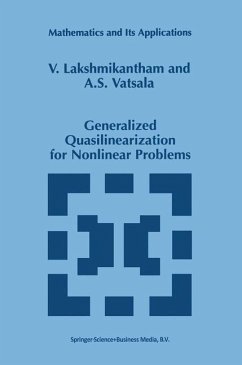The problems of modern society are complex, interdisciplinary and nonlin ear. ~onlinear problems are therefore abundant in several diverse disciplines. Since explicit analytic solutions of nonlinear problems in terms of familiar, well trained functions of analysis are rarely possible, one needs to exploit various approximate methods. There do exist a number of powerful procedures for ob taining approximate solutions of nonlinear problems such as, Newton-Raphson method, Galerkins method, expansion methods, dynamic programming, itera tive techniques, truncation methods, method of upper and lower bounds and Chapligin method, to name a few. Let us turn to the fruitful idea of Chapligin, see [27] (vol I), for obtaining approximate solutions of a nonlinear differential equation u' = f(t, u), u(O) = uo. Let fl' h be such that the solutions of 1t' = h (t, u), u(O) = uo, and u' = h(t,u), u(O) = uo are comparatively simple to solve, such as linear equations, and lower order equations. Suppose that we have h(t,u) s f(t,u) s h(t,u), for all (t,u).








